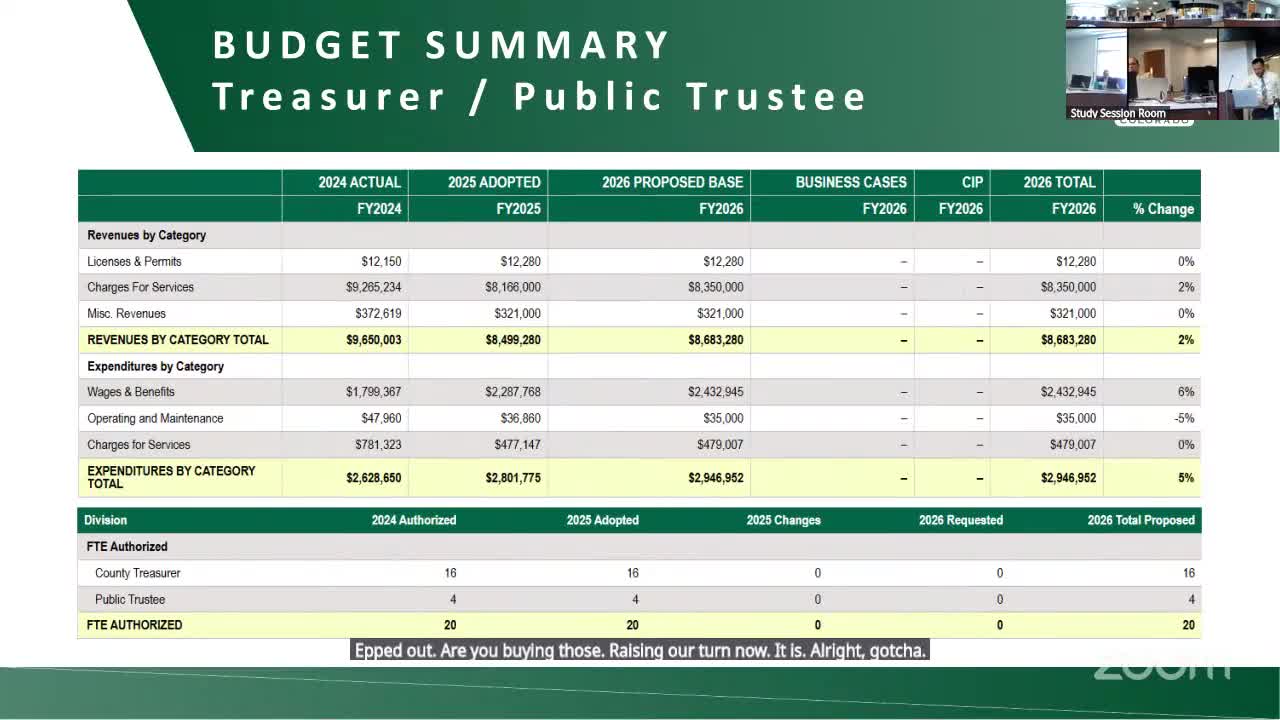Article not found
This article is no longer available. But don't worry—we've gathered other articles that discuss the same topic.
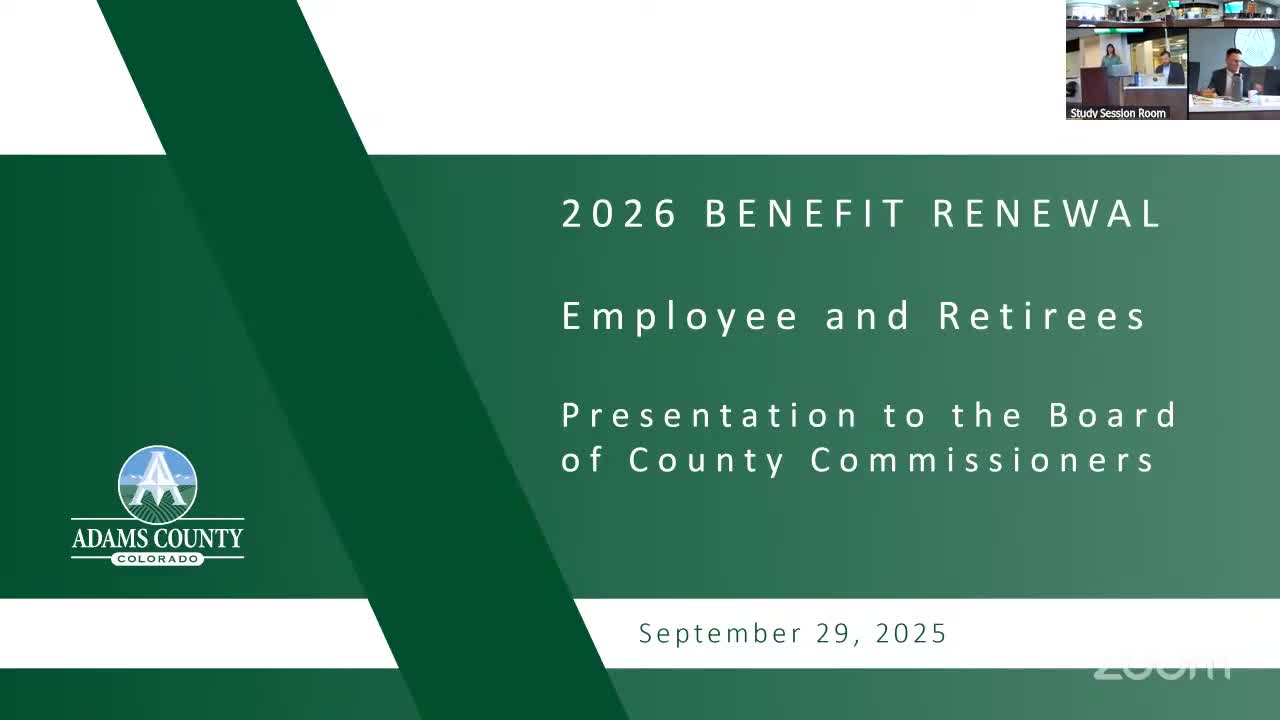
Adams County proposes 2026 health‑plan renewals, new Kaiser option and mental‑health coverage changes
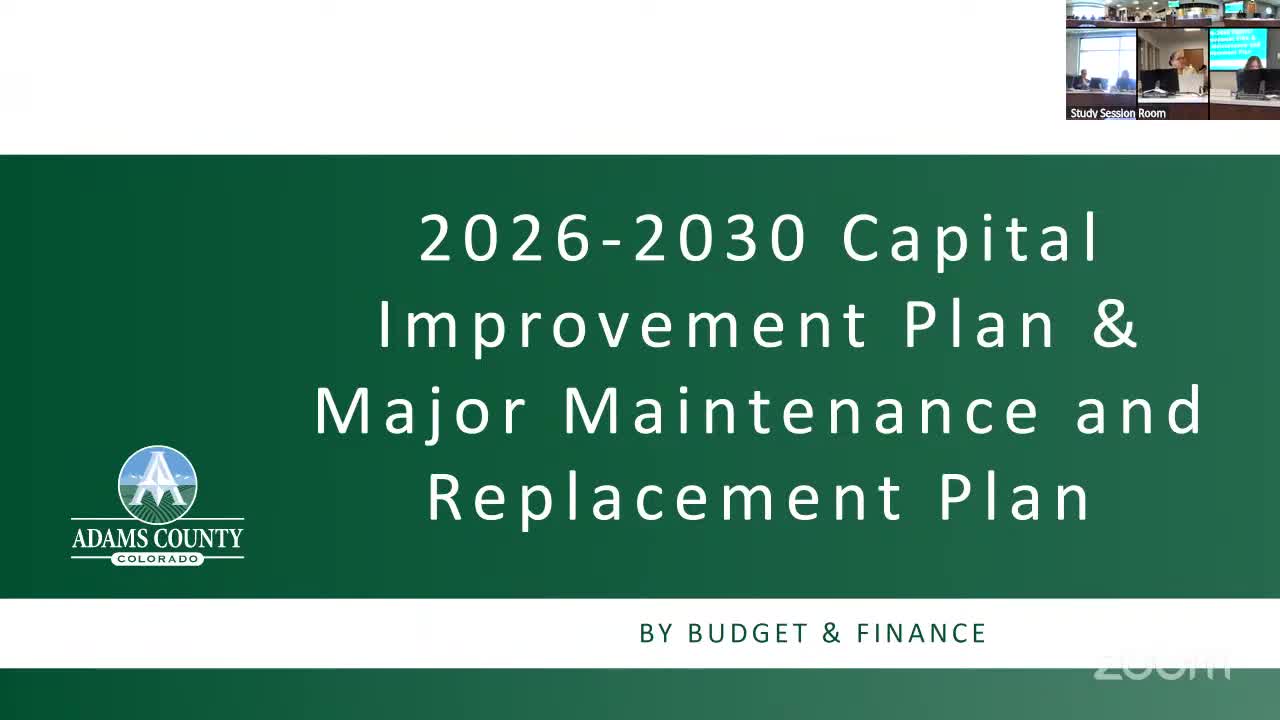
Adams County capital plan prioritizes detention repairs and runway work; committee urges focus on projects that can be delivered
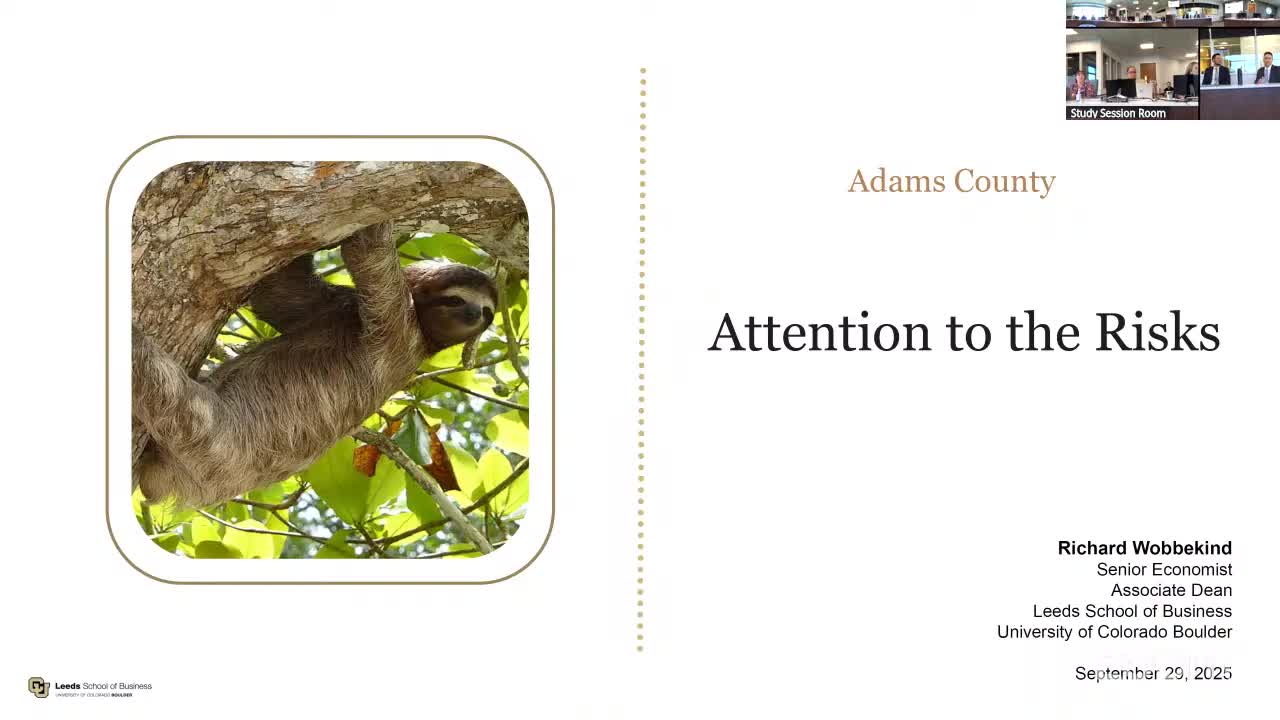
Local and state economy slowing but not in recession, CU economist tells Adams County budget retreat
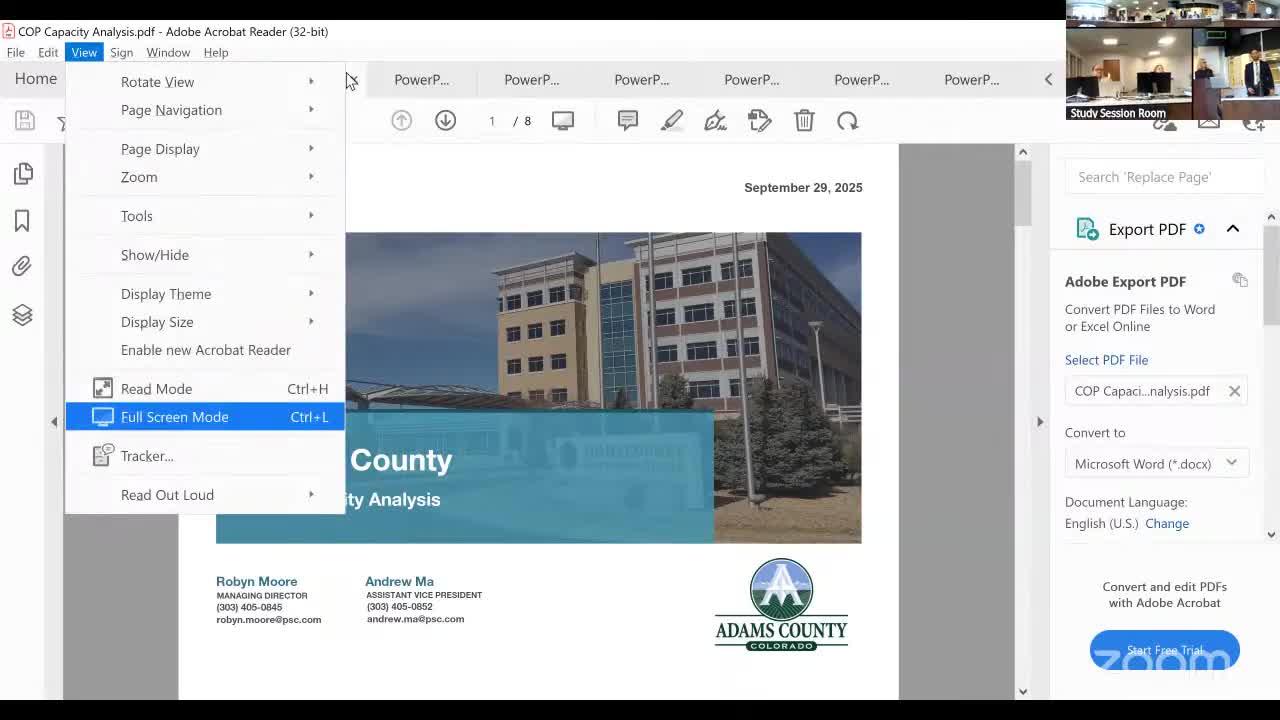
Adams County debt advisers outline COP capacity; assessor data and state law will alter property‑tax outlook
